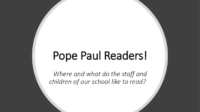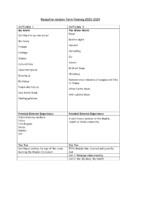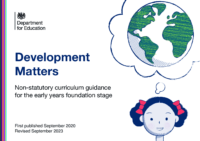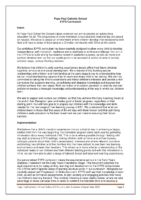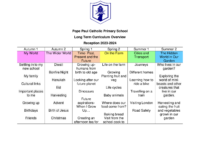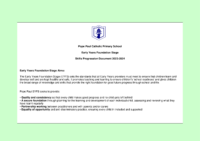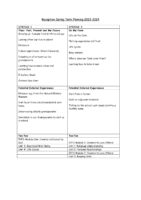Welcome to Reception September 2023 to July 2024
A very warm welcome from the Early Years Team – Mrs Carey our Class teacher, Mrs Gymer our Nursery Nurse, Mrs Lopez and Mrs Steff our Learning Support Assistants.
This is the year that your child becomes ‘school-ready’; developing their independence, confidence, resilience and curiosity. It’s an exciting time, for children and parents, as their school career begins.
What will my child do in Reception?
This year your child will continue to learn by doing things for themselves, by exploring and investigating, watching and listening, talking and discussing, creating and communicating — in other words — playing. Play is children’s work and playing hard is very tiring! Your child may be really exhausted and perhaps a bit grumpy when they come home! If they don’t want to talk about their day straight away, don’t worry, they will gradually let you into their new world as time goes by. Play can also be very messy, as your child will be learning both inside the classroom with dough, glue, paint, but also in the outdoors with sand, mud, leaves etc. so you can expect some mucky clothes at the end of the day!
What Is the Early Years Foundation Stage Statutory Framework?
The Early Years Foundation Stage (EYFS) Statutory Framework is a government document that all schools and Ofsted-registered early years providers in England must follow. It sets standards for the learning, development and care of your child from birth to 5 years old. The standards ensure your child will learn and develop well and are kept healthy and safe. All Early Years practitioners are required to offer rich learning experiences and activities, to support each individual child’s educational development, across all seven areas of learning.
What Will My Child Be Learning?
The EYFS statutory framework outlines seven areas of learning and development. There are three prime areas of learning, which are particularly important for your child’s development and future learning:
Personal, social and emotional development
One of the prime aspects of your child’s first year at school will be a focus on their personal, social and emotional development(PSED), and we will be aiming to give them a good start to their school experience by helping them form positive relationships, build confidence and self-awareness, as well as regulate their feelings and behaviour.
Physical development
Physical development is important too: you will hopefully notice that they are starting to move more confidently and are beginning to understand how to look after themselves and be healthy.
Communication and Language
The final prime area focuses on communication and language. Children learn through speaking and listening first and foremost, and this year you may notice your child communicating in a variety of ways— for example, through stories, in conversations with adults and their friends, or through facial expression, movement or dance.
There are four specific areas of learning, through which the prime areas are strengthened and applied: Literacy, Maths, Understanding the World and Expressive Arts and Design.
Literacy
Your child will learn the basics of literacy — reading, writing and phonics. Many parents are daunted by phonics, but there’s no need to be! At Pope Paul School, we follow the guidance laid out in the government’s document ‘Letters and Sounds’, covering 44 phonics sounds and 18 diagraphs (two letters making one sound — sh, ch, th, qu, ng, ai, ee, ie, oa, oo/oo, or, er, ow, oi) to read and spell words. Don’t worry — the way we teach progresses gradually, and you will be given lots of helpful advice along the way!
Maths
In Maths, your child will gain a deep understanding of numbers to 10, including the composition of each number, and will have lots of experience in comparing quantities up to 10 in different contexts. They will also learn how to recall number bonds through lots of practical addition and subtracting activities, rhymes and games. Your children will also explore and learn how to represent patterns within numbers up to 10, including evens and odds, double facts and how quantities can be distributed equally!
Understanding the World
Your child will learn about the world too, exploring different people, cultures and communities, the natural world and physical processes, and the past and present.
Expressive Arts and Design
Finally, imagination and creativity are championed in the area of expressive arts. Your child will explore different media and materials and be encouraged to use their imagination in a range of different experiences.
The key thing to remember is that your child learns holistically. In other words, most of the time they will be learning all seven areas of learning together, in a fairly jumbled way. So if your child spends most of his time in the sand area there’s no need for concern! They may well be covering all kinds of important learning; working with different materials, shapes, quantity and volume, creating imaginative worlds, feeling different textures, and even developing motor skills and strength for writing!
How can I help my child in Reception?
You can support the learning and development of your child at home by doing the following:
Read stories daily to your child and use them as an opportunity to talk about the characters and events in the story. You could also discuss some of the details children have spotted in the pictures, such as the character’s facial expressions.
Have lots of conversations with your child throughout the day. Try and increase their vocabulary by using a wide range of vocabulary.
Practise counting with your child and looking at small groups of items. Explore what happens to numbers when you put these small groups of items together, or split a larger group into two smaller groups.
Support your child’s early reading by practising phonic skills, such as recognising letter sounds and blending them together to read words. Also, support your child with their writing by checking they are forming their letters in the correct way and holding a pencil properly.
Encourage your child to make healthy food and drink choices, especially related to sugar content and how this can affect teeth. Also, support your child to properly brush their teeth at least twice a day at home.
Plan activities that allow your child to be active and develop their strength through large body movements as well as smaller, more precise movements.
Teach your child how to cut up their food independently and encourage them to hold a knife and fork correctly.
Encourage your child to have a go at dressing themselves at home, so that they can do it independently during the day. (Jumpers, coats, shoes, hats, scarves and gloves)
Please click on the links below for more information about the Early Years curriculum- ‘Development Matters’
Reception Uniform to be worn from September
Boys & Girls
• Navy logo jogging trousers **
• Yellow polo shirt *
• Navy logo sweatshirt *
• Black shoes (Sensible)
• Plain socks
• Optional – Navy logo Fleece Jacket*
Reception Summer Uniform to be worn from May
• Navy blue shorts* or skort*
• Yellow polo shirt *
Reception PE Kit (both boys & girls)
•Your child will not need a separate PE kit
Items marked * may only be purchased at our uniform suppliers, Smarty Schoolwear, in Potters Bar.
Our ‘Welcome to Reception’ link above, has information about our class routines and things you need to know to make your child’s transition into Reception as smooth as possible.
We look forward to welcoming you into our Pope Paul School community,
Mrs Carey and the Early Years Team
Reception Curriculum Overview 2023-2024
Please note that the above topics are subject to change. The children’s own preference and ideas may lead new topics to develop over the course of the year.


